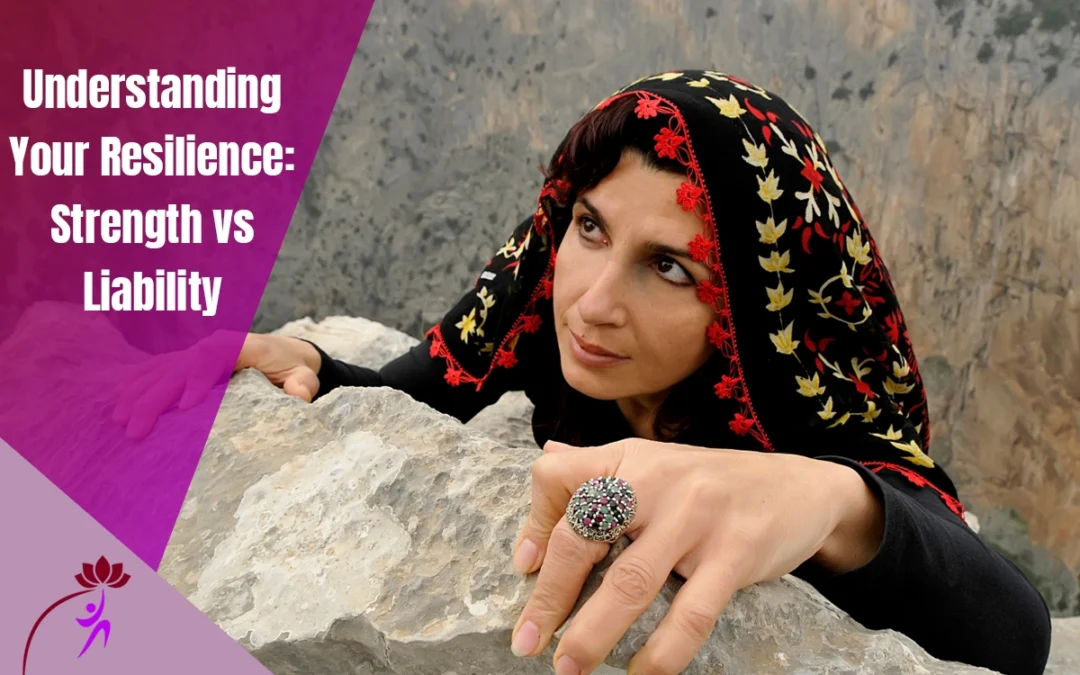Dear Audacious You Readers,
Without a doubt, the pandemic has tested—and even strained—our individual and collective resilience. I’ve been thinking a lot lately about this very quality of resilience especially during the recent commemoration of Black History Month. Whenever I reflect on Black people’s ongoing struggle for self-determination and justice, resilience is the term I believe most characterizes our fight. Resilience lives in our DNA.
What is Resilience Anyway?
At some point in our lives, most of us have faced a setback but through sheer grit and ritualized ingenuity, prevailed through a comeback. This “comeback” quality is what resilience is all about. Resilience is “the psychological quality that allows some people to be knocked down by the adversities of life and come back at least as strong as before. Rather than letting difficulties, traumatic events, or failure overcome them and drain their resolve, highly resilient people find a way to change course, emotionally heal, and continue moving toward their goals.”

An Internal & External Resource
For sure, resilience is an individual character trait, an internal resource, we can summon to fight back against adversity and move through difficult events. It is also true that community affiliation affords us resiliency and therefore, resilience is equally an external resource. Resilience is people-powered and heavily enabled by strong relationships and networks. There are boundless examples of this people power in movements for social change (e.g., American Civil Rights Movement and South Africa’s anti-apartheid movement). It is particularly through community solidarity, family systems, and networks that disenfranchised people are empowered to hope, find support, and resist injustices again and again and again . . .

The Flip Side of Resilience
Over the past two years, we’ve all witnessed ordinary people display immeasurable fortitude, compassion, and resiliency in the face of previously unimaginable devastation and extraordinary circumstances. Educators, healthcare workers, and frontline workers, in particular, have been called upon repeatedly to serve and care for others. But, at what cost? Yes, resilience is a powerful tool for overcoming adversity, but it can also be debilitating. A burden.

What headlines and experts rarely discuss is the flip side of resilience. When we are constantly asked or expected to push through challenging or traumatic events with little to no support or with little regard for our own humanity, resilience can feel like a burden especially when we are depleted.
I understand this notion most intimately within the context of Black people’s ongoing struggle for justice and recognition of our humanity in societies with majority white rule. Yes, resilience is in our DNA, but why must we ALWAYS have to be resilient to have “life, liberty, and the pursuit of happiness?” The overuse of any strength is a liability. In one of my early blog posts written during the height of the pandemic and the #BlackLivesMatter movement, I wrote about this debilitating impact and unhealed trauma: Can You Hear Us Now?
Understanding Your Own Resilience: When It Propels & Debilitates
At its best, our resilience teaches us to have faith in ourselves, our power, and our collective ability to make things happen. To be clear, resiliency doesn’t mean that we don’t experience struggle or deep pain. We are not invincible. What it does mean is that we can leverage our internal and external resources to get through and overcome hard times. Often, we emerge with new perspectives and a powerful, determined presence. Therefore, it’s worthwhile to understand your own resilience and when it functions as a strength to propel you forward or a deficit with diminishing returns.
4R’s Exercise to Knowing Your Resilience DNA
What’s the source of your resilience?
What has resilience afforded you in your life?
When does it feel unhealthy, taxing?
Here’s a 4R’s exercise to help you become better acquainted with your own resilience.
💭 Recall. As vividly as possible, recall a situation(s) when you experienced a setback and didn’t immediately know how you’d get through or overcome it.
🎯 Reconnect. Reconnect to the thoughts you told yourself and the emotions you felt. What kinds of things did you say aloud or think silently. What emotions did the thoughts create? This profile will provide a window into your default mindset and emotional response during a crisis or hardship.
🧱Reconstruct. At some point during the setback, something shifted that enabled you to fight back. Try to reconstruct what led to the shift. This is your leverage point. Who or what inspired the change in thought and action? What beliefs, values, or innovations (e.g., making something from nothing) moved you forward?
🔍 Reflect. Looking back, what factors contributed to your resilience? Formulate as many statements as you can about the source of your resilience, its optimal use, and what it has taught you about yourself. Allow this newfound (or reinforced) perspective to inspire greater self-confidence and self-knowledge about your own agency to fight back—and prevail!
Like any strength, when applied optimally, resilience can be a powerful tool for overcoming hardships. Going forward, be mindful of when and how your resilience serves you—and when it doesn’t. When your resilience is taken for granted or constantly demanded, you’re likely no longer operating from a strength but rather, a deficit. At this point, you’re entitled to safeguard your health and humanity. This is your power and right!

To Your Resilience & Humanity,


About Glenda M. Francis
Glenda M. Francis is the founder of Audacious Inner Works Institute, a personal development and capacity building service organization. She is an ICF credentialed life coach specializing in confidence building and women’s wellness and power.
Contact:
Contact us for our life coaching and personal development services.



